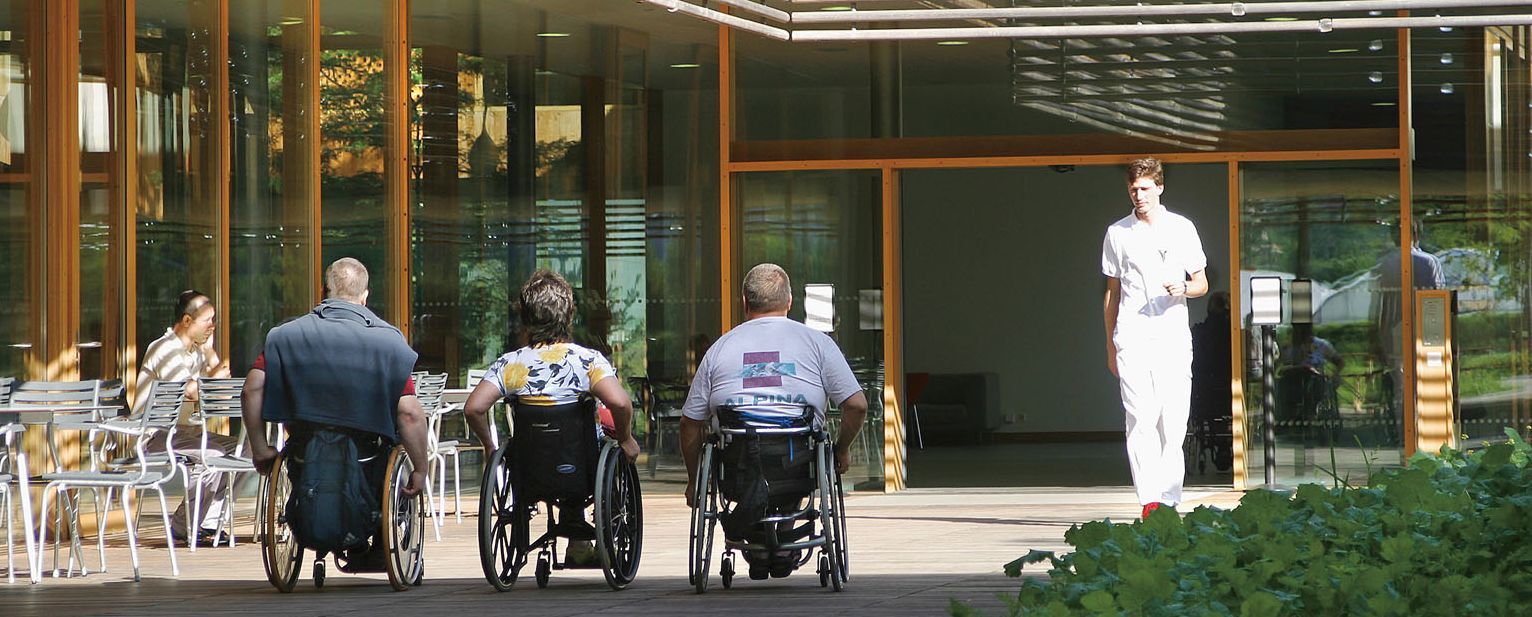SwiSCI study
Switzerland-wide, long-term study of people with spinal cord injuries
The objective of the SwiSCI study (Swiss Spinal Cord Injury Cohort Study) is to survey the health and social situation of people with spinal cord injuries, from initial rehabilitation to daily life in society. The study is being conducted at the four Swiss centres for people with spinal cord injuries: Schweizer Paraplegiker-Zentrum Nottwil, Centre de Réadaptation Sion, Zentrum für Paraplegie der Universitätsklinik Balgrist and at REHAB Basel.
What is being researched?
The SwiSCI study is investigating how the state of health in people with spinal cord injuries develops after initial rehabilitation, as well as which factors have an influence on later life. The results of the study should help improve medical care and societal conditions for those with spinal cord injuries and enable them to grow older in good health.
How is the study being run?
The study begins around four weeks after the injury to the spinal cord. First, information about the person, the severity of the injury, their state of health and their living situation is gathered. Participants then receive a questionnaire concerning, among other topics, their health behaviour, how they deal with symptoms and their family and work situation. We also incorporate clinical measurements, for example blood pressure, muscle strength, mobility of the joints and pulmonary function.
The evaluations are conducted four weeks after the injury and – depending on the duration of the rehabilitation process – at 12 and 24 weeks and upon discharge from the clinic.
In order to determine the connection between the early stages of initial rehabilitation and the later state of health, all participants are asked to take part in an outpatient SwiSCI survey upon completion of their initial rehabilitation.
